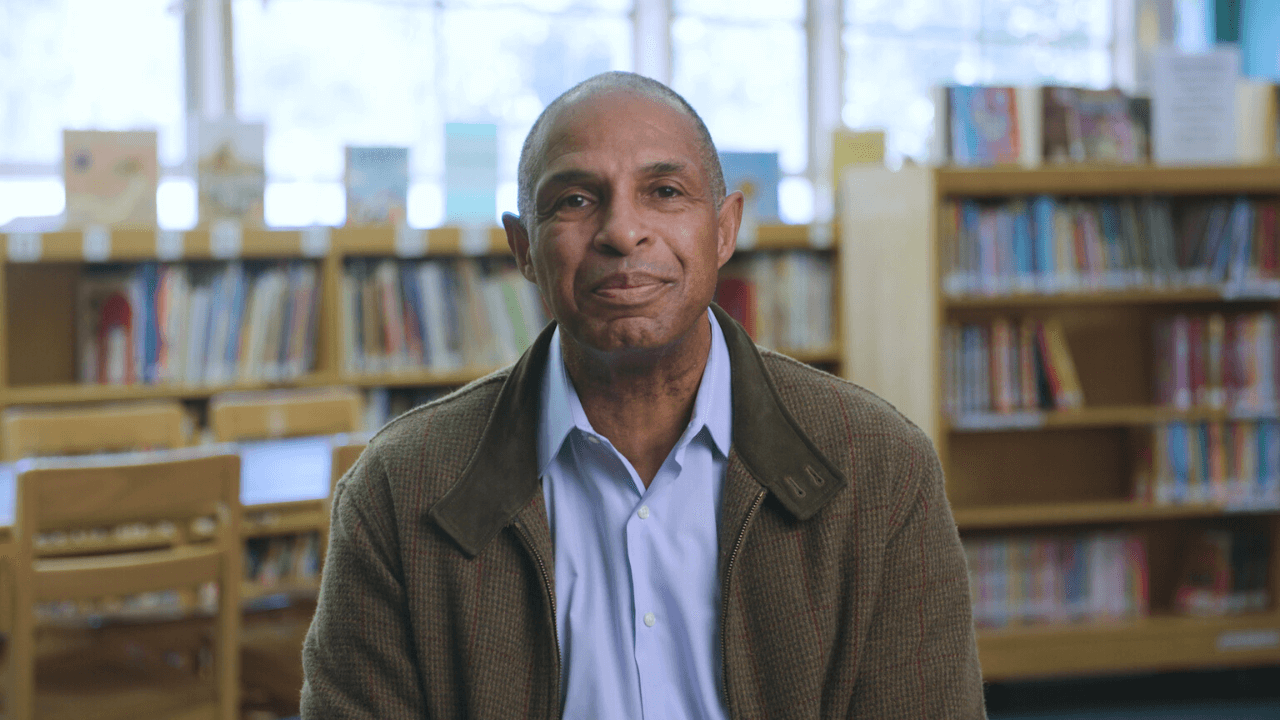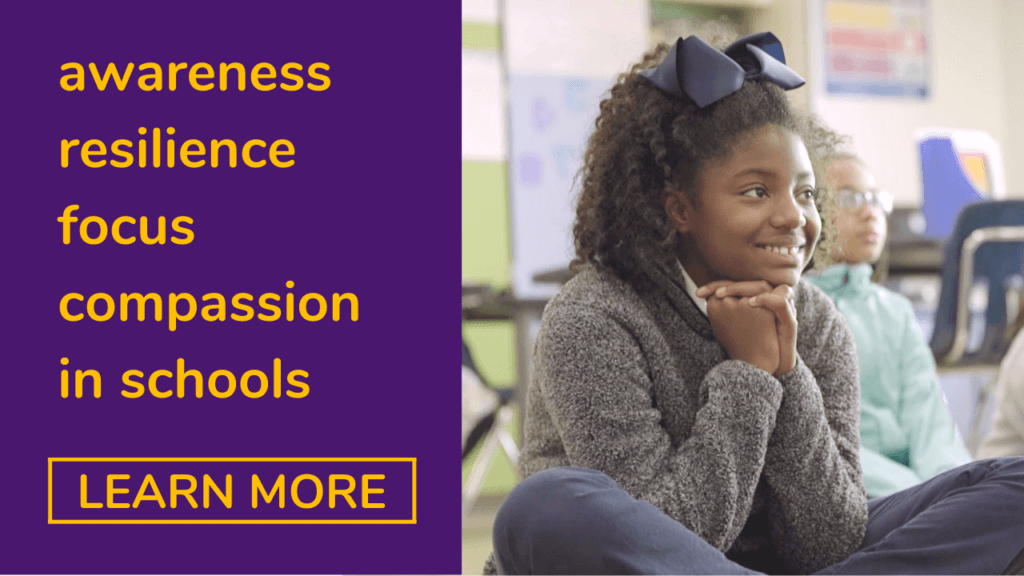This school is disrupting the educational system for underrepresented students. Learn how you can help.

To truly understand the impact that mindfulness can have on schools, one only has to listen to the words of Maurice Harper, a principal at Civic Center Secondary School in San Francisco.
Civic Center is not your average school–its students enroll due to juvenile probation, homelessness, expulsions, truancy, and behavioral intervention. What makes the school unique, however, is not the population it serves, but how it chooses to serve them.
Civic Center is steadfast in its commitment to creating an inclusive and safe environment in which positive relationships are a key. Mindfulness practice is leveraged across the school to build community and nourish staff so they feel equipped to deal with any challenges that arise.
Thanks to the generosity of our community and the support of the Kaiser and Quest foundations, Mindful Schools’ School-Wide Mindfulness Program has been supporting Civic Center’s work for the past two years, with powerful results.
This is an edited excerpt from a conversation between Principal Harper and Mindful Schools:

Mindful Schools:
Can you tell us about the population of students that Civic Center Secondary School serves?
Harper:
Civic Center is a County school. We have students who have been involved in juvenile probation and have a parole officer, some are wardens to the court, some are staying in group homes, and some are homeless. They come from all the different kinds of family constructions—grandmothers as heads of household, single dads, or even older sisters that are taking that responsibility. Most of our students are behind in credits, have been truant, or are no longer considered graduation track students–so coming to school is a big thing. We try to instill that hope back in them.
Because of their probation, many students have monitoring devices that are part of their person 24 hours a day. Some students deal with trauma by using substances to numb themselves to the hurt or the fears that they have. Many come from across the city to get to school, so they legitimately have fears for their safety in passing through certain neighborhoods. That’s a real challenge. These students have dealt with the violence of poverty, the violence of abuse, the violence of neglect. The majority are African American males; we also have a strong contingent of African American females, and some Latino males and Latina females. We have students who have been expelled from the district schools. Some, once they have gained some traction, can go to a continuation school or back to a comprehensive school.
Mindful Schools:
Why did you choose to work with Mindful Schools?
Harper:
I saw the opportunity to be part of Mindful Schools as a gift. At the end of the prior year, I had a staff member that was overwhelmed and actually attempted suicide. I am very aware of the trauma that our staff goes through. His commitment was typical to the commitment that our folks make to our students—he did all he could for them, he put in long hours and was very personable, all while still upholding the necessary boundaries.
At that point, I knew that mindfulness was essential for our staff, who give so much of their life, every day, to our students. They experience and share the trauma that our students display and need an opportunity to build their skills and establish a mindfulness practice, just for their own quality of life. So as we were struggling to put together our version of a program in response to the needs at our school, the Mindful Schools opportunity presented itself and it was exactly what we needed.
Thankfully that teacher is back with us this year and participating in our mindfulness program. From our ongoing support, he is now up and running and ready to go.
Mindful Schools:
How has Mindfulness helped your school?
Harper:
I’m going to talk about one young woman. She came to us from a large comprehensive high school. She had all the descriptors of not feeling a part of things—isolating herself, hiding in the restroom during school, just completely not able to function at school. Now, she is a contributing member of our classroom mindfulness program. Of course we are also providing her with support and counseling and anything we can. But through this mindfulness program, I’ve seen her connect to a group, contribute strongly to a group, be present in the classroom, and stand up to be an advocate for other folks.
Mindful Schools:
Would you recommend this program to another principal?
Harper:
I would describe it to a fellow principal as the greatest gift that they could provide for their staff or faculty—some time for them to reflect and understand that they are impacted by their students, and that they are really giving their lives every day.
As they give their lives, they need an opportunity to center themselves so that they are everything they can be, not just for our students but for their own families. We all want great teachers, but that great teacher is certainly, oftentimes, overworked or over committed or overextended. An essential gift that I can provide, as a principal, is for them to feel the support of their community.
I say: You know what? This is wellness and this is mindfulness and this is a part of what I’m requiring you to do. Making it a requirement gives them permission to still be a good teacher and to stop and pause and have some self care. They can say: This is what I do to deal with the trauma in my life, to deal with the trauma in the lives of my students.
The opportunity for us as a staff, as a community, to practice wellness together makes us a healthier school, a healthier place, and gives us connections with each other to provide all the support we need.
The School-Wide Mindfulness Program at Mindful Schools partners with Civic Center Secondary School and four other under-resourced schools in the San Francisco Bay Area to cultivate cultures of emotional resilience, focus, and cooperation. Graduates from Mindful Schools’ Mindful Teacher Certification Program lead the work, ensuring that these “mindful schools” remove barriers to learning and create learning environments in which students and staff can realize their potential.
Bring mindfulness to your school by exploring our training programs here, or help support this life-changing program through making a gift to Mindful Schools.
Mindful Schools is a 501(c)(3) nonprofit organization and we rely on the generosity of our community to bring mindfulness to classrooms and schools around the world. All donations are tax deductible. Thank you!

